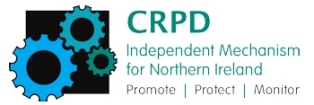Programme for Government
The Equality Commission has set out its recommendations in relation to the next Programme for Government (PfG) and Budget of the NI Executive. We have highlighted the need for a clear commitment in the PfG to address key inequalities experienced by S75 groups, underpinned by robust measures, as well as a commitment to promote good relations.
Read our
key point briefing (pdf) or
recommendations in full (pdf), 2016). Further information is available on the Programme for Government section of our website
www.equalityni.org/pfg
Public Policy Consultation Responses
Read some of our recent consultation responses (pdfs) relating to disability:
All consultation responses are available in our main consultation responses search page
What is the UN Convention on the Rights of Persons with Disabilities?

It is an international treaty which identifies the rights of disabled people as well as the obligations on Parliament and the NI Assembly to promote, protect and ensure those rights.
UNCRPD explains that all disabled people have and should be able to enjoy the same human rights as other people. It sets an international benchmark for the human rights of disabled people. The areas covered by UNCRPD include: health, education, employment, access to justice, personal security, independent living and access to information. Read more>
What is the Equality Commission's role?
The Equality Commission and the
Northern Ireland Human Rights Commission (NIHRC) are jointly designated as the '
independent mechanism' to promote, protect and monitor implementation of UNCRPD. It is our responsibility to look at how UNCRPD is being implemented in Northern Ireland, and report on this to the UN Committee. We will be working with NIHRC to update and revise key recommendations in advance of the UN Committee examination of the UK State Party.
Making a Complaint
The UN Convention has an additional section called the Optional Protocol which allows individuals who believe that their Convention rights have been breached to bring complaints to the UN Disability Committee (provided they have exhausted national and European means of redress). The Committee can also undertake enquiries into alleged grave or systematic violations of UNCRPD
. Find out more - How do I make a complaint about a violation of UNCRPD?